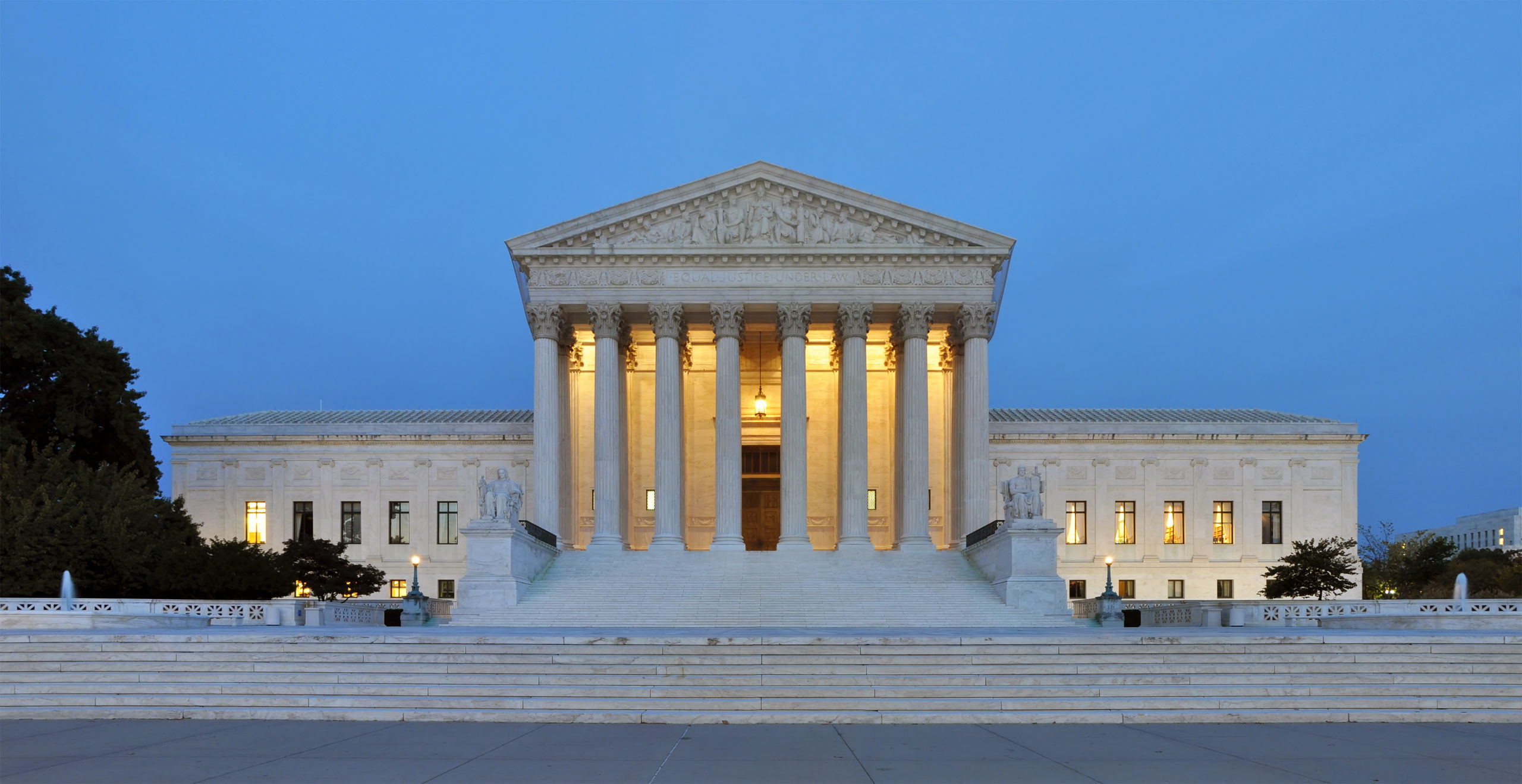Justice under the law is a fundamental tenet of our Democracy. That is why the framers of our Constitution established the Judicial Branch as a co-equal branch of our government. In their wisdom and as part of the checks and balances that exist between the Legislative, Executive and Judicial branches, the framers assigned to the legislature the task of establishing the federal court system and funding its operations. The President, upon the advice and consent of the Senate, appoints the justices and judges who apply the rule of law to do justice.
The justice system of our country has worked well over the centuries, but today public approval and confidence in our judiciary is down to historically low numbers. Only 54% of Americans have “a great deal” or “a fair amount” of trust in the judicial branch. The number is even lower for the United States Supreme Court, where only 40% approve of the job it is doing. The recent revelations about Justice Clarence Thomas and his wife Ginni will no doubt drive those numbers lower.
My fellow citizens, the time has come for Congress to take action to build public confidence in our judiciary. That is why I have a comprehensive plan to reform our courts and restore justice, accountability and trust.
To protect access, I introduced, and the House passed the H.R. 963, the FAIR Act, which stops the enforcement of forced arbitration clauses that have blocked workers and consumers from having their day in court in front of a jury.
If you agree that everyday people should have the right to a trial by a jury of their peers, then sign our petition demanding that the Senate pass the FAIR Act. Visit CourtReformNow.com.
To ensure justice and accountability, I have introduced H.R. 4766, the Supreme Court Ethics Act. No longer can we accept the fact that U.S. Supreme Court Justices should be exempt from being covered by the same Code of Conduct that all other federal judges are bound to follow.
To ensure civil rights for the 30,000 employees of the federal judiciary, I have introduced H.R. 4827, the Judiciary Accountability Act, which extends civil rights laws to the very judiciary that enforces the civil rights laws on everyone else. The Judicial Branch should not be exempt from the civil rights laws that apply to everyone else, and we must ensure that our judiciary employees have strong statutory rights and protections against discrimination, sexual harassment, retaliation, and other forms of workplace misconduct.
Over the past 30+ years, the nation’s population has markedly increased, the internet has led to globalization of our economy, and life has become much more complicated. Despite the explosion of civil and criminal litigation, Congress has failed to pass legislation creating more judgeships to keep up with demand, resulting in justice delayed and justice denied. That is why I introduced H.R. 4886, the District Court Judgeships Act, which will alleviate the backlog by creating 203 new district court judgeships.
Article III, Section 1 of the Constitution empowers Congress to set the size of the Supreme Court with a simple bill. In fact, Congress has set the size of the Court seven times before. Thomas Jefferson added a seat to undo his predecessor’s partisan bid to steal one. Abraham Lincoln, Ulysses S. Grant, and the Reconstruction Congress changed the Court’s size three times to help defeat white supremacy. Expanding the Court is the only way to ensure that the American people get to choose the world we want to live in. Anything less leaves the future of our nation, our planet, and our fundamental civil rights at the whims of a far-right supermajority that is hostile to democracy itself. That is why I introduced H.R. 2584, the Judiciary Act to expand the size of SCOTUS to 13, so that there is one justice to preside over 1 of 13 Circuits, so.
One of the reasons why public confidence in the work of SCOTUS is so low is because of the dark money interest groups that have driven the Court to the extreme right. To get at this problem, Rep. Johnson is working with Senator Sheldon Whitehouse in filing H.R. 6266, the AMICUS Act, which will bring transparency to amicus-based judicial lobbying for the first time.
While the words “equal justice under law” might be written in stone above the Supreme Court, these recent events have made clear that we can’t take those words for granted. That is why I introduced H.R. 7426, the 21st Century Courts Act, which would significantly enhance the accountability and transparency of the federal judiciary by instituting a comprehensive suite of reforms.
I’ve also introduced H.R. 5844, the bipartisan The Open Courts Act, which would modernize and secure the federal judiciary’s court records system (called CM/ECF) and make federal court records freely available to the public.
I introduced H.R. 7647, The Supreme Court Ethics, Recusal, and Transparency (SCERT) Act, which requires justices of the Supreme Court to adopt and follow a code of ethics, places transparency standards on gifts and travel, codifies recusal standards and requires the court to disclose lobbying and dark money interests before it. That bill passed the Judiciary Committee and will be voted before the full House of Representatives soon.
Lastly, in an effort to restore legitimacy and independence to the nation’s highest court, I recently introduced The Supreme Court Tenure Establishment and Retirement Modernization (TERM) Act, which would establish term limits for Supreme Court justices while preserving constitutional protections for judicial independence in decision making. Under the TERM Act, a new justice would take the bench every two years and spend 18 years in active service.





